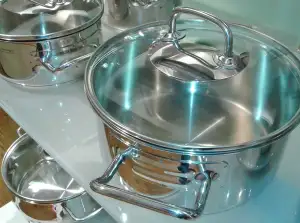Cracking the Code: How Long Can Eggs Safely Sit Out? Essential Storage Tips for Home

Proper egg storage is crucial for maintaining their safety and freshness. Eggs are a staple in many households, used in various recipes and enjoyed in different forms. However, it is essential to handle and store eggs correctly to prevent any potential health risks. This article will explore the shelf life of eggs at room temperature, factors affecting their shelf life, how to determine if they are still safe to eat, safe storage options, and tips for extending their shelf life. By following these guidelines, you can ensure that your eggs remain safe and delicious for longer periods.
The shelf life of eggs at room temperature
The shelf life of eggs at room temperature can vary depending on various factors. Generally, eggs can be safely stored at room temperature for about 2 to 3 weeks. However, it is important to note that this timeline may differ based on the conditions in which the eggs were produced and handled. It is always recommended to check the expiration date or use-by date on the carton as a guideline for freshness. Additionally, it is crucial to consider the quality of the eggs before consuming them to ensure they are still safe to eat.
Factors affecting the shelf life of eggs
Factors affecting the shelf life of eggs include temperature, humidity, and handling. Eggs should be stored in a cool and dry place to prevent bacterial growth. Exposure to high temperatures can cause eggs to spoil faster. Humidity can also impact the quality of eggs, as excessive moisture can lead to mold or bacteria growth. Additionally, proper handling is crucial as rough handling can damage the protective coating on the eggshell, making it more susceptible to contamination. By considering these factors, you can ensure that your eggs stay fresh for longer periods.
How to determine if eggs are still safe to eat
To determine if eggs are still safe to eat, there are a few simple tests you can perform. First, check the expiration date on the carton. If it has passed, it's best to discard the eggs. Next, give them a visual inspection. Look for any cracks or signs of mold. If the shells are intact and clean, proceed to the next step. Fill a bowl with water and gently place an egg in it. If it sinks to the bottom and lays flat on its side, it is fresh and safe to consume. If it stands upright or floats, it is no longer fresh and should be discarded. Remember, when in doubt, throw it out!
Safe storage options for eggs
Safe storage options for eggs include refrigeration and proper handling. It is recommended to store eggs in the refrigerator at a temperature of 40°F (4°C) or below. This helps to slow down the growth of bacteria and maintain their freshness. Additionally, it is important to keep eggs in their original carton to protect them from absorbing odors and flavors from other foods in the fridge. Avoid storing eggs on the refrigerator door as they may be exposed to temperature fluctuations. Remember to always check the expiration date on the carton before using them. By following these storage guidelines, you can ensure that your eggs remain safe and fresh for a longer period of time.
Tips for extending the shelf life of eggs
1. Store eggs in their original carton to protect them from absorbing odors and moisture.
2. Keep eggs refrigerated at a temperature between 35°F and 40°F (1.6°C and 4.4°C).
3. Avoid placing eggs near strong-smelling foods as they can absorb odors easily.
4. Do not wash eggs until you are ready to use them, as this removes the protective coating that helps keep them fresh.
5. Use older eggs first to ensure you are consuming the freshest ones.
6. If you have excess eggs, consider freezing them by cracking them into a freezer-safe container and labeling with the date.
7. Cook any leftover egg dishes thoroughly to kill any potential bacteria.
By following these tips, you can maximize the shelf life of your eggs and enjoy them safely for longer periods of time.
Proper storage is crucial to maintaining the safety and freshness of eggs. By understanding the shelf life of eggs at room temperature and the factors that can affect it, we can make informed decisions about their consumption. It is important to always check if eggs are still safe to eat by conducting simple tests such as the float test or examining for any signs of spoilage.
To ensure maximum safety, it is recommended to store eggs in the refrigerator, which can significantly extend their shelf life. Additionally, using an egg carton or container with a tight lid will protect them from absorbing odors and flavors from other foods.
By following these essential storage tips, we can enjoy delicious meals without compromising our health. Remember, proper egg storage is not just about preserving taste but also preventing foodborne illnesses. So let's crack the code on egg storage and keep our kitchens safe!
Published: 16. 12. 2023
Category: Home



